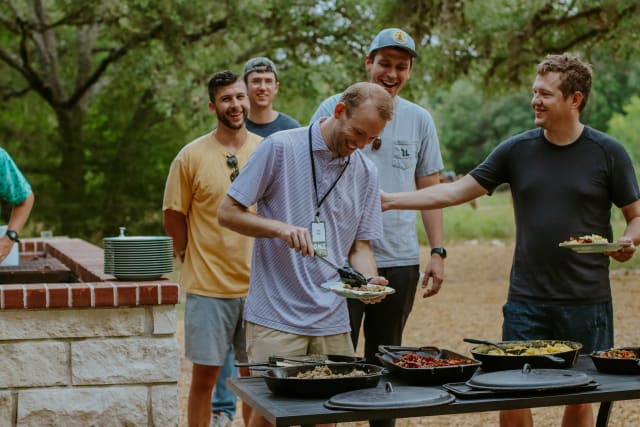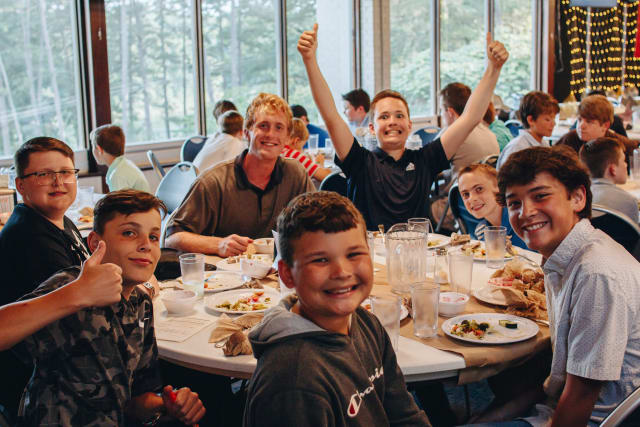
by Mitch Hartt

Some of the perceived benefits camp has on kids—and ourselves—are consistency and simplicity. This consistency may manifest itself through time in the Word, frequent worship, or constant community driven by a counselor loving their campers with intentionality. The simplicity plays out largely through a highly structured/programmed space with zero access to social technology.
One of the less often considered (but highly impactful) benefits of a week at camp is the consistency and simplicity of sitting around a table and eating a meal together.
When we eat a meal together, we step into something that humanity has in common across time and culture. The table is a social staple that helps us understand that we belong. Unfortunately, in our current cultural moment, eating together is in decline and people are not better off for it.
Take a look at this from an article in The Atlantic: “Sadly, Americans rarely eat together anymore… the majority of American families report eating a single meal together less than five days a week… Not eating together also has quantifiably negative effects both physically and psychologically.” The article elaborates with several more statistics, and the conclusion is clear: children do not flourish when families habitually forgo eating together. Campers at Pine Cove, however, get to experience a true sense of belonging when they enjoy meals together!

Firstly, how did we get here? The global culture of eating together is being replaced through voluntary isolated eating. It is voluntary because we have willingly traded it for something else—likely technology, convenience, or some combination of the two. As a result, we alienate ourselves from one another and wonder why it’s not going well. Here we abandon a critical practice that unites us with each other, and willingly (if not eagerly) trade the community of the table for whatever it is we receive through our phones or solitary time.
At camp, however, we remove mealtime distractions as a way to reintroduce beneficial habits. During the week a cabin will eat a meal together three times a day for five days. This likely makes eating together the thing campers communally do most frequently. Within the context of Jesus frequently eating with the outcast, Tim Chester writes that, “The marginalized cease to be marginal when they’re included around a meal table. The lonely cease to be lonely. The alien ceases to be alien. Strangers become friends.”
If a camper comes to Pine Cove feeling lonely, isolated, or marginal, a week at camp may dramatically affirm a sense of belonging and community. In the context of camp, it is community as envisioned by Christ and influenced by the Spirit of God. When this happens, it makes sense that a heart is rendered soft to the beauty of Jesus.
Posted Mar 28, 2023
Categories: Inside the Cove (Browse all)
Click here to sign up for our Inside the Cove newsletter!